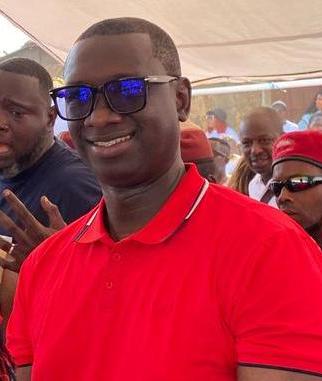By Idriss Balogun Tejan
There are moments in a party’s history when rules bend, when voices clash, and tempers rise. Such moments test more than the rules; they test the soul of the party. When the All People’s Congress (APC) finds itself in such trying moments, fate places the weight of unity on the shoulders of one man, not in a boardroom or on a campaign podium, but on a stretch of road between a hospital bed and a convention hall.
It was on February 18th, 2023, that a man who had long served quietly and diligently within the APC ranks was involved in a car crash, one that was violent and unforgiving. The man inside was seriously injured; his vehicle was crushed beyond repair.
He was rushed to the Holy Spirit Hospital in Masuba, Makeni, under the care of Dr Patrick Turay. The pain was overwhelming. His condition was uncertain. Medical tests were ongoing, seeking answers about internal injuries that could not be seen with the eye.
The accident had occurred at Makoth, just outside of Makeni. Yet, the very next day, February 19th, an urgent situation had erupted at the APC National Delegates’ Conference. Voting had come to a complete halt. Disagreements among flagbearer aspirants had paralyzed the process. It was a court-ordered convention, one already delayed by legal and internal disputes. Postponement was therefore not an option, and the leadership needed a solution – fast.
In that moment of uncertainty, amid tension and disagreement, all sides looked toward a single name for leadership, for candour and resolution. It was one man known for calmness in storms, for unity in divisions, and for fairness in conflicts. He had become known for resolving the thorny National Reformation Movement (NRM) impasse, mediating rival factions, and guiding the party back into legal and political alignment. Now, once again, the party turned to him.
But that man was lying in a hospital bed in pain, still awaiting diagnosis, but he asked the nurses to stop his treatment. He could no longer wait. Time he didn’t have. With limited mobility and battered by injury, he left his hospital bed and began the nearly one-mile walk to the convention hall. Vehicles meant to transport him were blocked. Roads were congested. He walked anyway. Bruised, aching, and limping because duty had called, because he understood the weight of the moment. His party, his lifelong political home, was at a crossroads.
When he entered the hall, many were stunned. Weakened but resolute, he took up the responsibility. With calm, measured leadership, he steered the process through disagreement and suspicion. The flagbearer election continued through the night, into the early hours of February 20th. He remained there until the final ballot was cast, anchoring the party in unity when it needed it most.
This act of devotion came at a cost. His condition worsened in the days that followed, eventually requiring urgent treatment abroad. He flew out of the country for emergency treatment in Portugal, bearing all the financial cost himself.
That price of selflessness, once again, paid in silence by a man so constant in sacrifice and mediation, in stark contrast with the claims of a few who now mischaracterize him as a newcomer, or suggest his influence is merely a product of family ties. These narratives, though loud in some corners, are limited in reach. The broader APC family remembers. They know. They were there.
Dr Ibrahim Bangura’s commitment is not written in press releases; it is written in sacrifice, pain, and presence. And if there is any comfort in the swirling of unfounded doubts, it is that the majority within the APC recognises the truth, leadership is not always loud, but when it matters most, it shows up, sometimes walking, injured and unhealed, into the fire.
As the Akan proverb says, “The great tree is best known by the storm it survives.”


